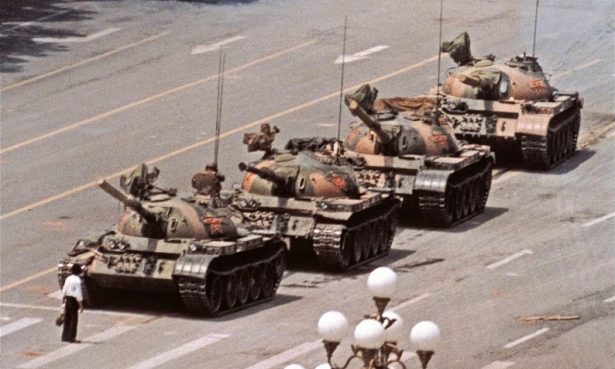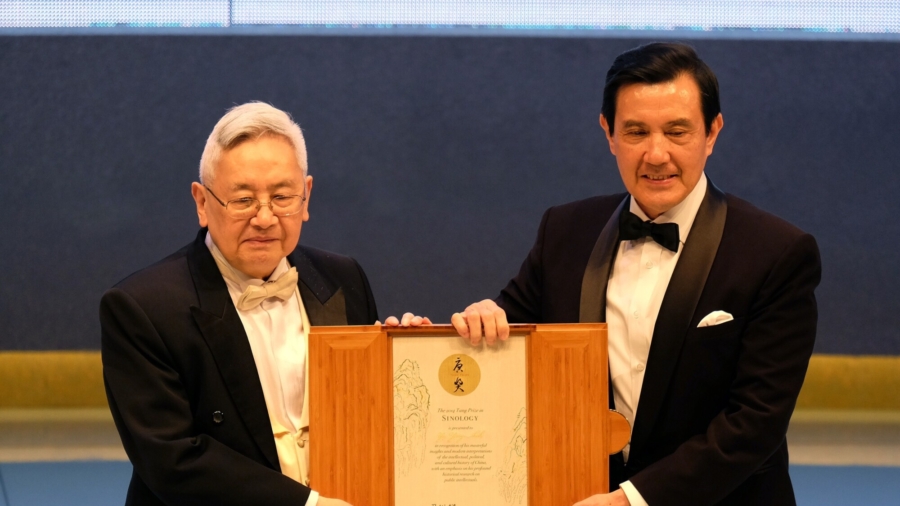Yu Ying-shih, 91, a world renowned Chinese historian and sinologist, passed away in his sleep at home in Princeton, New Jersey on Aug. 1.
On Thursday (Aug. 5), when the family announced his death, the global Chinese community mourned Yu and praised his contributions to Chinese studies, as well as his support for democracy and freedom in Hong Kong and Taiwan.
“[Yu] was widely recognized as one of the most prominent historians of his generation and had made lasting contributions to the study of Chinese history and culture,” professor Alan K.L. Chan, acting vice-chancellor of Chinese University of Hong Kong (CUHK), wrote in the university’s eulogy on Aug. 5.
“[Yu] supported Taiwan’s Sunflower Student Movement and Hongkongers’ protest against the controversial extradition bill. He always voiced for justice at the most critical moments, and has never wavered,” Chen Fang-Ming, professor at Institute of Taiwan Literature, National Chengchi University, told Taiwanese semi-official Central News Agency on Aug. 5.
In Mainland China, where the Chinese regime banned Yu’s books and articles, scholars mourned Yu as well.
“The knowledge of Mr. Yu Ying-shih integrates East and West, blends the ancient and modern. It’s rich and broad, has pioneering power and inspiring significance,” BBC quoted He Weifang, former professor of Peking University Law School, on Thursday. “[He] demonstrated the independent personality and free spirit that an intellectual should have.”
Yu had a large number of students in mainland China, Taiwan, Hong Kong, and the United States. He was a tenured professor at Harvard University, Yale University, and Princeton University, where he was an emeritus professor.
“[Yu] was known for his mastery of sources for Chinese history and philosophy, his ability to synthesize them on a wide range of topics, and for his advocacy for a new Confucianism,” Princeton University said on its website.
An Anti-Communist Historian
In Yu’s books and articles, he frequently talked about communism, saying that the party is against humanity, the regime rules China using force, and socialism is in fact the worst kind of capitalism.
As a historian, Yu said that the Chinese Communist Party (CCP) distorted the Chinese history to favor its rule of the country and fooling the people. “The history that mainlanders learned is a fake one. … It’s a pseudo history that [the CCP] created for its political propaganda,” Yu told the website China in Perspective on Feb. 17, 2002.
In his books, Yu said that he witnessed the CCP army kill 300 villagers who didn’t support it in the 1940s. In 1989, one of Yu’s cousins lost her 19-year-old son during the Tiananmen Square Massacre. The young man went there for a peaceful protest seeking China’s democracy.
In Yu’s books, essays, and interviews, he frequently advocated for freedom and democracy. Yu publicly praised the democratic system that Taiwan has, and criticized the socialism that the CCP created in mainland China.

A Living Legacy
Yu was called a “living legacy” by many of his students.
He studied in China, Hong Kong, and the United States, taught in Hong Kong and the United States, published at least 59 books in Chinese and English, was elected to the American Philosophical Society and the Taiwanese Academia Sinica, and won the John W. Kluge Prize and Tang Prize in Sinology.
Yu was born in China’s Tianjin in 1930, and studied in China until 1949, when he studied History at Yenching University in Beijing.
Yu moved to Hong Kong, which was then a British colony and free land, before the CCP controlled mainland China, and studied with Ch’ien Mu, a scholar rooted in traditional Chinese philosophy.
In 1955, on Ch’ien’s recommendation, Yu went to Harvard University in the United States, where he obtained a Ph.D. in history. His teacher was Yang Lien-sheng, the first full-time historian of China at Harvard and a prolific scholar specializing in China’s economic history.
Yu spent most of his life in the United States, and taught at different universities, including University of Michigan and the three previously mentioned Ivy League schools. In the 1970s, Yu went back to Hong Kong, and became the Pro-Vice-Chancellor of CUHK and the head of his alma mater New Asia College, a CUHK constituent college, before he returned to Harvard.
From The Epoch Times

